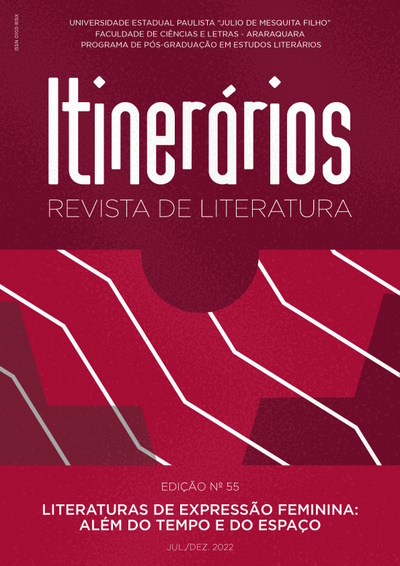Virginia Woolf, dinheiro e “a mais antiga das profissões”
uma leitura cerrada
DOI:
https://doi.org/10.58943/irl.v1i55.17804Palavras-chave:
Dinheiro, Prostituição, Profissões para mulheres, Virginia WoolfResumo
Este artigo tem como objetivo traçar as referências de Woolf ao dinheiro e sua relação com a prostituição, nos ensaios A Room of One’s Own, Professions for Women, Three Guineas e em seus romances Orlando e The Years. As referências de Woolf ao dinheiro são explícitas desde o início; na verdade, os próprios títulos sugerem a importância do dinheiro. Em A Room of One’s Own, a narradora afirma o título na primeira frase. Para ter um quarto todo seu, é preciso ter dinheiro ou algum outro privilégio. À medida que a narrativa evolui, fica claro que, para ser livre, uma mulher educada que é escritora de ficção ou poeta realmente precisa de £ 500 por ano (pode-se supor que é essa fonte estável de renda que garante a privacidade de ter um próprio quarto). Em “Professions for Women” (título claramente associado ao trabalho remunerado e renda), o “Anjo do lar” se intromete e aconselha “‘Nunca [para] deixar ninguém adivinhar que você tem uma mente própria. Acima de tudo, seja pura’. Nesse momento, a narradora, uma mulher financeiramente independente, tendo herdado “quinhentas libras por ano” e, portanto, “não dependendo apenas do charme para viver”, percebe que deve matar esse anjo que está tentando forçar o narrador a voltar na esfera privada de subordinação e subserviência aos homens. Como o Anjo destruiria a liberdade intelectual do narrador, a morte seria justificável. Em Three Guineas, o foco do narrador no dinheiro é ainda mais óbvio, já que o título é uma referência direta a uma moeda, o guinéu era originalmente uma moeda.
Downloads
Publicado
Edição
Seção
Licença
Os manuscritos aceitos e publicados são de propriedade da revista Itinerários. É vedada a submissão integral ou parcial do manuscrito a qualquer outro periódico. A responsabilidade do conteúdo dos artigos é exclusiva dos autores. É vedada a tradução para outro idioma sem a autorização escrita do Editor ouvida a Comissão Editorial.

